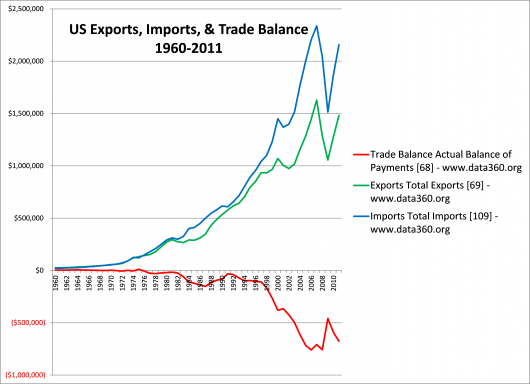In 2011, world financial markets and elected leaders more or less avoided the U.S. debt ceiling cliff. At the end of the 2012 calendar year, the so-called fiscal cliff awaits, subject to a short-term or long-term detour created by a seemingly less-than-creative U.S. Congress. Yet, it seems another cliff is appearing on the horizon, a cliff receiving little or no attention like the iceberg that sank the Titanic.
During the last five decades of my observing the U.S. electorate, hopefully filtered through increasingly critical thinking and emotional intelligence, it seems that two foundational elements of the U.S. system of governance are eroding. Historically, the keys to effective U.S. governance have been an informed and educated electorate. These two crucial characteristics depend on a free press and an effective public education system, two factors that seem increasingly ineffective.
Test scores and other indicators of comparative educational performance show the U.S. collective student body continuing a long decline compared to their colleagues in other countries. This decline appears systemic and may point to a simultaneous decline in the absolute performance of U.S. students and improved test scores by their counterparts elsewhere in the world. Teachers and their unions may be too easy a target for blame. Ineffective teachers need to improve or seek new careers, but many teachers in the U.S. lack lack appropriate and necessary instructional resources and parental support to meet societal expectations.
Anecdotally, the decline in U.S. student performance seems to parallel the rise in two-income families. When both parents work outside the home, especially if one or both parents work two or more jobs, mom and dad have no time to help with homework. Seemingly simultaneous with the rise in two-income families in the U.S., in some cases driven by need as much as want, is the rise in participation in after-school sports and other extracurricular activities. So students have less time for homework and parents have less time and, in some communities, less ability to help with that homework. As a consequence, generations of students enter the workforce and electorate under-prepared by school systems and parents to make decisions in the workplace and in the voting booth.
The press in the United States is failing in their chosen calling of reporting news; in doing so, the fourth estate provides less information on which this increasingly under-educated and under-prepared workforce would otherwise rely. Newspapers, magazines, electronic media, and cable and network television promote agendas rather than pursuing truth. A so-called news program interviews two or more people who stridently assert inherently conflicting positions as fact. Although both positions cannot possibly be true, the anchor or moderator or reporter rarely makes the effort to reconcile the positions and separate truth from fiction.
During the recent string of presidential debates, network fact checkers proved themselves unworthy of their titles or positions by failing to distinguish true from false. News should simply be news and editorial clearly opinion without forcing the audience to classify the two. News should be presented as fact and be consistently, reliably true with retractions or corrections presented when necessary. However, the U.S. news media presents programming as commercial entertainment to secure advertising dollars. The press may be free, for the most part, of government influence, but it is not independent.
So, the upcoming cliff may just be the continued degradation of the revered system of U.S. governance facilitated by an under-educated electorate and a less-than-independent press. Unless leaders in the U.S. consciously and quickly begin to address the rebuilding of the three legs of our governance stool, the inevitable consequence seems to be continued societal fracturing and an eventual collapse over the cliff of basic governance.
